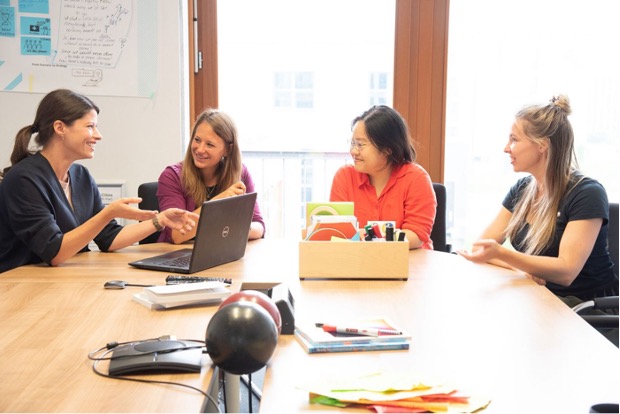31 August 2021 | Münster
Recently Dr Kerstin Kurzhals and her team publicized a toolbox that has been created as part of and in collaboration with the münster.land.leben project in a digital format. Münster.land.leben revolves around promoting health andwell-being in rural areas of the münsterland and is the biggest transdisciplinary transfer project at FH Münster University of Applied Sciences. This isachieved through 13 sub-projects that concern themselves with different facets of health through a participatoryresearch approach.

The toolbox combines operative and strategic tools to make them available for scientists and social actors that engage in science/society projects. Science/society refers to projects that involve parties from science and society backgrounds working together to contribute towards social development. The idea for a toolbox comes from the need to overcome various transfer barriers encountered in transdisciplinary cooperation projects. Twelve different transfer barriers that act as obstacles in transdisciplinary cooperation were identified.
Based on the identified barriers, methods and tools to overcome these barriers were collected and modified. The knowledge regarding transfer barriers and methodological approaches to overcome them enables scientists and practitioners to conduct successful science/society projects.
The toolbox results from a co-creation process between Dr Kerstin Kurzhals, her team, and various disciplines and departments from the sub-projects of the münster.land.leben project to extract their best practices in dealing with the identified transfer barriers The outcome is a collection of transdisciplinary methods that act as enablers for future science/society projects. This collection of tools and methods resulted in the successful creation of a toolbox that has grown into a full-fledged book, a box of cards for the practical usage of the tools in project work and an accompanying toolbox website that offers additional downloads for interactive templates. The first physical versions of the tool-book have been finished. The research team is proud that the book has been accepted by the publishing house Springer-Gabler and will be available as Open Access publication to make the results available to a broad public of researchers and practitioners. Furthermore, the toolbox has been made available in a digital format for scientists and practitioners interested. The application of the methods that can be found on the website contributes to the success of cooperative projects between science and society, with the overarching goal of providing the necessary "tools" to successfully address the challenges of our society through improved methodological access and support appropriate to the requirements of cooperation in transdisciplinary collaborations. Because only together we can find answers to the challenges of our time.


